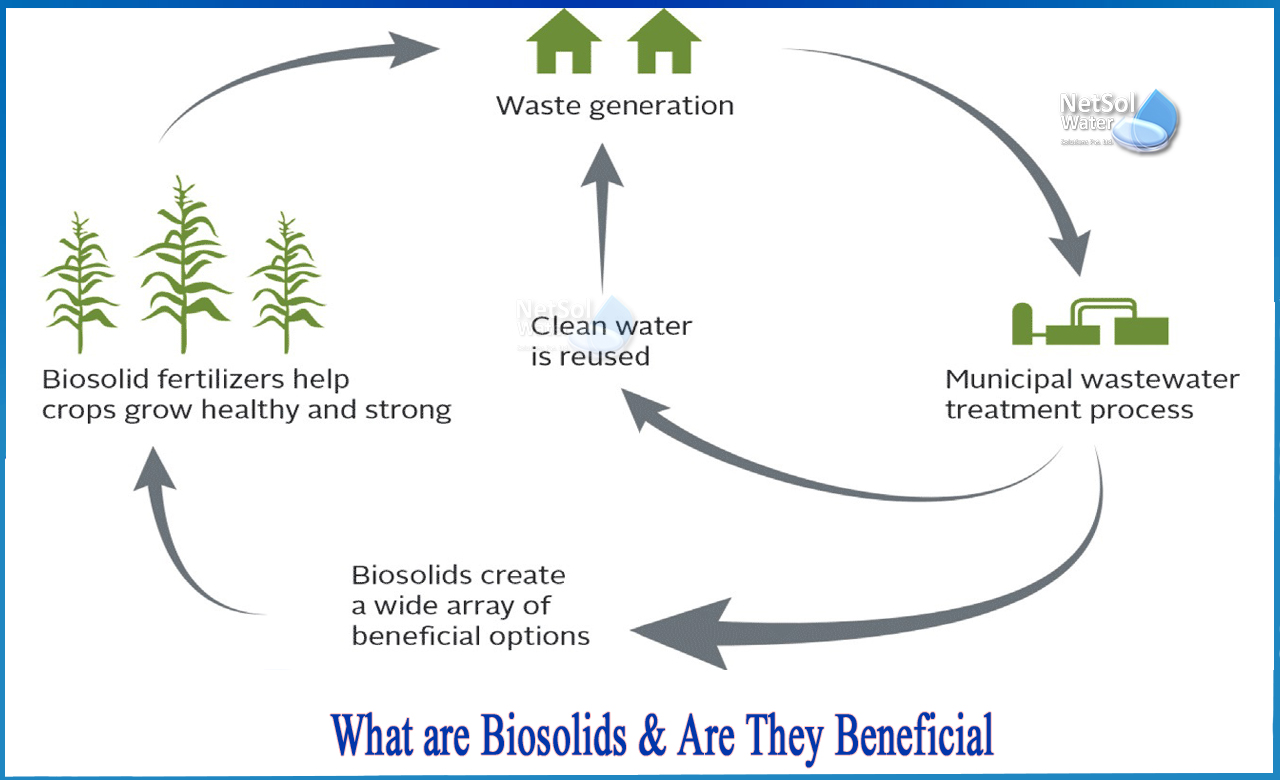What are Biosolids & Are they beneficial?
Biosolids are a significant byproduct of wastewater treatment. They can be useful for a variety of purposes when properly treated and managed. Biosolids are sewage sludge that has been treated. Biosolids are only considered to be such if they meet the requirements of a set of approved biosolids management guidelines.
Sewage sludge refers to solids collected during the wastewater treatment process but not further processed. Sludge typically contains up to 3 percent solids. Sewage sludge is considered biosolids after it has been further treated to significantly reduce disease-causing pathogens and volatile organic matter, resulting in a stabilized product suitable for beneficial use. Biosolids are typically composed of between 15% and 90% solids.
What is in biosolids?
Biosolids are made from wastewater sludge, which is primarily a mixture of water and organic materials that is a byproduct of sewage treatment processes. The majority of wastewater is generated by household kitchens, laundries, and bathrooms. Bio-solids may contain the following:
· Macronutrients such as nitrogen, phosphorus, potassium, and Sulphur are examples of macronutrients.
· Copper, zinc, calcium, magnesium, iron, boron, molybdenum, and manganese are examples of micronutrients.
Traces of synthetic organic compounds and metals, such as arsenic, cadmium, chromium, lead, mercury, nickel, and selenium, may also be found in biosolids. These contaminants restrict the extent to which biosolids can be used, with all applications regulated by appropriate government authorities in each state and on a federal level. Treatment processes result in a stabilized product that can be used for good.
The advantages of using biosolids on agricultural land:
1-Provide nutrients:
One of the most significant advantages of biosolids land application is the addition of plant-essential nutrients such as nitrogen (N), phosphorus (P), and potassium (K). Applying biosolids to cropland allows farmers to gain plant-available nutrients, particularly nitrogen and phosphorus, at a low cost.
2-Increases output:
The most significant effect of applying biosolids to soils is an increase in yield. The availability of a diverse range of trace minerals in biosolids is credited with increasing yield. The presence of trace minerals has an impact on the soil environment's overall health. Most soils are deficient in trace elements (heavy metals) that plants require for healthy growth. Trace mineral deficiency can be remedied by applying biosolids to the soils.Biosolids are like soil vitamin pills because they contain nearly all of the essential trace elements, such as zinc (which is chronically deficient in soils but is required for crop growth), vanadium, chromium, iron, copper, cobalt, and molybdenum. There are currently no fertilizers in the market that can provide a more complex array of essential trace nutrients. A fertilizer blend containing all of the necessary plant nutrients would be prohibitively expensive for the average farmer.
3-Addition of organic matter:
An indirect benefit of biosolids is increased organic matter. The amount of biosolids applied at agronomic rates is insufficient to have a direct effect on organic matter increase. The increase in organic matter from biosolids is attributed to an increase in plant residues after harvest, such as leaves and stems, as well as, more importantly, the proliferation of plant roots in the soil. Microbial degradation and transformation of plant residues into organic matter improves trace element availability for plant uptake. Plant residues left above and below the soil surface after harvest also help to control erosion by acting as a wind and rain shield.
4-Enhance soil structure:
One of the long-term benefits of applying biosolids to land is improved soil structure. When biosolids decompose, a substance is formed that glues and binds soil particles together to form blocks. The end result is a soil that is stable and has good physical properties. Improved-structured soils have increased porosity, which improves water root penetration and decreases bulk density. All of these factors work together to produce favorable soil tilth.
5-Help the community:
Communities benefit from biosolids land application because it frees up much needed space in sanitary landfills. Land application of biosolids is significantly less expensive for the community than disposal methods such as landfilling or incineration. Land application also provides an opportunity for farmers and the city to collaborate in a mutually beneficial venture.
For more information, contact Netsol Water.
Netsol Water is Greater Noida-based leading water & wastewater treatment plant manufacturer. We are industry's most demanding company based on client review and work quality. We are known as best commercial RO plant manufacturers, industrial RO plant manufacturer, sewage treatment plant manufacturer, Water Softener Plant Manufacturers and effluent treatment plant manufacturers. Apart from this 24x7 customer support is our USP. Call on +91-9650608473, or write us at enquiry@netsolwater.com for any support, inquiry or product-purchase related query.



